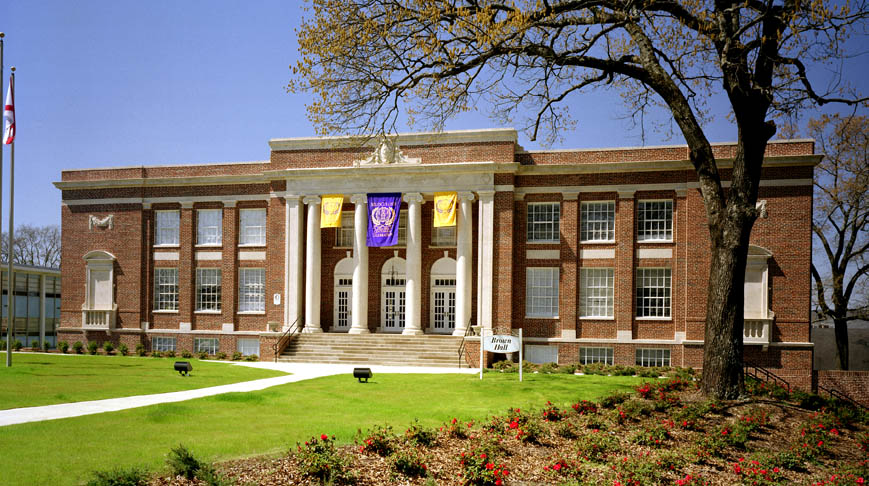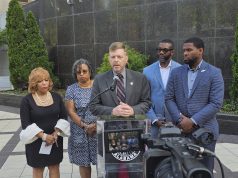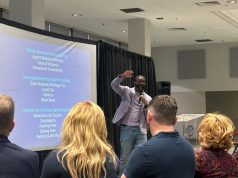By Kyoka Akers
For The Birmingham Times
Miles College, Talladega College and Tuskegee University – three Historically Black Colleges and Universities (HBCUs) in the state of Alabama — are among the 77 schools that had federal grants, for programs designed to help low-income students, rejected by the U.S. Department of Education.
The Upward Bound program, which is not being funded this summer, was in place to help high school students from low-income families, or families in which neither parent holds a bachelor’s degree, prepare for college. Under the program students were able to live on college campuses for the summer and attend classes as if they were actual college students.
“There will be 81 students who will not get the benefit of the services for academic, cultural, and social enrichment that this program has provided in this community for more than 50 years,” said Rhonda Nunn, Guidance Counselor for Miles College Upward Bound program. “They won’t get tutoring, they won’t get tours of college campuses, the academic counseling or the financial aid assistance that they need.”
Last month, U.S Secretary of Education, Betsy DeVos, said part of the problem stemmed from formatting and clerical issues, but she directed department staff “to allow flexibility on formatting and other technical elements on all grant applications. Bureaucratic red tape should never get in the way of helping students.”
The impact on Birmingham area students is significant.
Decarlo Howard, who will be a junior in the fall at Huffman High School, has participated in the Upward Bound program for the past two years.
“Before I started Upward Bound I was shy,” said Howard. “It helped me get out of my comfort zone because I was forced to meet new people. It also helped me learn how to study and as a result I participate more in class and my grades have improved.
“This is really a good program and it affects people’s lives. I have friends who were a part of this program and now they don’t have anything to do for the summer. We look forward to seeing each other. It (Upward Bound) made you feel like family. That’s what we go by now. We’re just one big family.”
Upward Bound is part of the federal TRIO programs, which are outreach and student services programs designed to identify and provide services for individuals from disadvantaged backgrounds.
U.S. Rep. Terri Sewell said the program has “provided invaluable resources” to young people across her district since the 1960’s.
“It is obviously deeply disturbing that these long serving Upward Bound programs at HBCU’s in Alabama will no longer provide much needed assistance for first-generation college students from underserved communities,” Sewell said. “As a strong advocate of TRIO programs, I believe the Department of Education needs to be held accountable to explain how a disproportionate number of the Upward Bound programs in Alabama that lost their funding were HBCU’s and how we address this disparity.”
Miles College seemed to run into problems when the objective section of its funding proposal was deemed “too ambitious and unattainable” by the Department of Education Technical Review, which is a group from outside the federal government who serve as “field readers” or “peer reviewers.”
According to Nunn, the grants are divided into sections such as “needs, plan of operation, objective, evaluation, community service, personnel and budget.”
In order to receive funding a school must a score at least 99.83 and Miles received a 97. The school lost nine points in objective section of the grant proposal.
In the objectives section, the applicant can only enter a percentage amount. Some of the percentages Miles entered considered too ambitious and unattainable were:
- 40 percent would achieve proficiency on standardized exams
- 90 percent would graduate high school
- 80 percent would enroll in post-secondary education
- 40 percent would achieve post-secondary-education
According to Nunn, their students have either achieved or surpassed these goals and objectives each year for decades.
“We said 90 percent of our student will graduate high school, well we’ve had years where we had 100 percent, but given the graduation percentages at the three schools we listed as target schools — Fairfield, Midfield and Bessemer — and given their drop-out rates they (Department of Education Technical Review team) felt there’s no way we could have students coming into Upward Bound and have a 90 percent graduation rate,” said Nunn. “Yes, we are ambitious, but we have reason to be. The future for these young people should not be underrated or diminished by those who have no faith in their abilities. That anyone is considering withholding funds for the continuation of this program is heartbreaking.”






